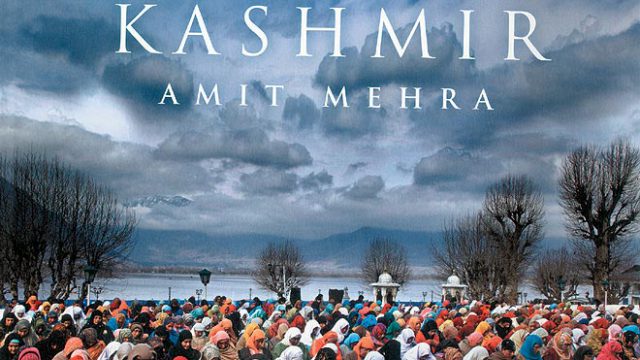Indian artists, photographers and filmmakers have engaged in a variety of ways with Kashmir in the past two decades. Sheba Chhachhi’s stunning black and white images of 1994 were the first self-conscious attempt to break away from the dichotomy of the picture postcard beauty of Bollywood films and the violent images of the insurgency in the news. These later morphed into Chhachhi’s complex art installations like When the gun is raised… and The Trophy Hunters. American photographer Ami Vitale spent five years in India and journeyed obsessively to Kashmir to create images both mesmerizing and terrible. Who can forget the irony of an armed BSF patrol in gaily decked shikaras coming together in the perfect, grim symmetry of military power? Kashmiri photojournalists like Altaf Qadri have taken that trope to new levels of excellence. It is in the context of this formidable body of work that Amit Mehra makes his entry with Kashmir, a large-format photo book.
The work is best described as quiet. Many of the images are familiar: the ziyarats, the bazaars, Dal lake, portraits of elderly Kashmiris, but what stands out is a series of landscape photographs of Kashmir in winter: blanketed under the snow is the faint sketch of trees, buildings and roads. Two images break the harmony: a line of skiers behind the backs of blood-red chairs and in an obvious reference to the Shopian rape case, a broken doll in snow. Editorial discretion could have been used against the inclusion of the most pedestrian of symbols: a chinar leaf caught in barbed wire or the military uniform in Srinagar’s tulip gardens. These, fortunately, are balanced by unusual images such as the blur of a girl running with her ponies or the solitary tomcat prowling in a graveyard.




